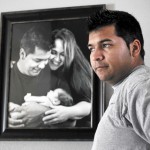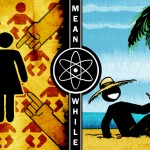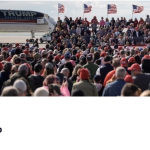Every Friday in Civil Discussion, Ben Bartlett (who majored in Political Theory) and Richard Clark (a political spectator who is friends with a guy who majored in Political Theory) discuss political events as they happen over email, hashing out the meaning and manipulations behind them. Also just being bros.
Ben: I’ve got to say, I was surprised by the reaction to Nick’s article. I thought it was incredibly gracious and helpful; exactly the sort of thing we want to encourage in terms of tone and thoughtfulness.
Richard: Well, for whatever reason the comments are insane, but the Twitter and Facebook response was much more positive, even from people who disagreed.Though I will say I think a lot of it just has to do with how confused Christians are as a whole about how to live within a democratic system. It’s not as if there’s any direct analogues in scripture, so you end up with a lot of crazy extremes which don’t often communicate or cooperate well with one another.
Ben: One thing I like about CAPC is that we work really hard to separate commands from “helpful habits.” In other words, we try to be clear about the difference between things that Scripture definitely DOES say, and things it does not necessarily say.
Evangelical leaders love thinking up ideas and practices and disciplines that help certain kinds of people to obey God better. That’s fine. But too often, they aren’t careful to emphasize that those helpful habits are not inherently Scriptural and as such are not commanded for all people. Instead, they treat these suggestions as very nearly coming from the mouth of God himself. Some good examples might include courtship, home schooling, not playing videogames, or doing daily “quiet times.” More extreme examples include things like only eating organic foods, refusing to allow women to have jobs, or being against all popular media (movies, TV, music, etc.).
Voting is one of those things. There’s nothing in Scripture that definitively requires voting. Why do you think it’s such an emotional issue for so many people? Or can you think of reasons that it should be?
Richard: People seem to really internalize the stakes. Which, personally, I kind of appreciate. I am a person who feels like there is some sense in which we can have an affect on the rest of the world, and that voting plays a crucial role in that, electoral college be damned.
Still, I think the talk of not-voting being sin is a little much. Personally, I eye-roll at those who don’t vote – even our own writers! I think it’s much more valuable to kind of do a little bit of praying and thinking through the issues and to actually engage politically rather than back out as if it doesn’t have anything to do with you. Because it does! Living in a country means taking an active part in that government, no matter how much we deny it. The more we can influence that government, the better off we’ll be, I say.
The balance we face is, we don’t want to be legalists, here. We don’t want to say it’s a sin to vote or a sin to not vote. But it doesn’t hurt to lay out clearly what the stakes are, what’s to be gained by voting or lost by not voting. But also, we have to be clear about what won’t be won or lost either.
I may eye-roll, but I don’t blame someone like Nick. Because we haven’t exactly been left a tradition of balanced political involvement.
Ben: I think you strike a nice balance, despite that lack of inherited tradition. Wise and prayerful participation is a good goal.
However, let’s take a moment to get into the mind of a person who DOES make an idol out of politics. When they read Nick’s article, do they see themselves? Or do they simply say, “well, lots of people flat out disagree with this writer, so I’m in that camp too.”?
I guess I would just ask people in the, “Yes you should vote” camp to do some very serious evaluation of whether they are making it into an idol. Personally, I would say that as soon as you tell someone it is sin not to vote you are making it an idol. And when you make it your business to try to shame or bully someone else into voting when they don’t want to, that’s borderline idolatry as well.
One of the few nice things about elections is that they force a lot of introspection: do I as a conservative Christian support the liberal Christian or the conservative Mormon? Do I vote based on positions or on pragmatism? Do I want to take back territory in the culture wars or to encourage peace in the public square? I would even suggest that spending a good amount of time asking and answering those questions of yourself is a more relevant and meaningful activity than the act of voting (especially if you live in one of the forty-some states where your vote cannot sway the electoral college outcomes).
I plan to vote in this election. But I like that Nick has his values in the right place and I wouldn’t be afraid for others to follow him. Perhaps if Christians held the importance of voting more lightly, they would also engage more wisely.












